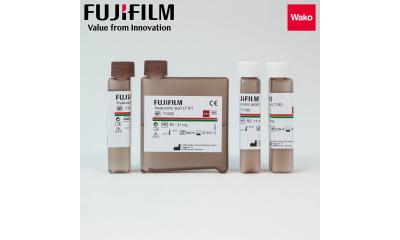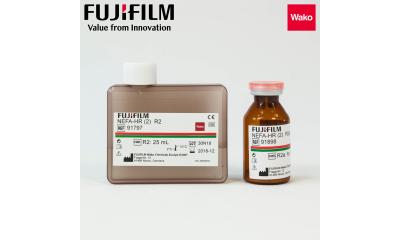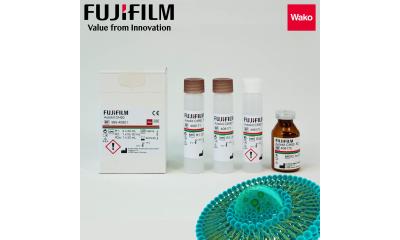Sponsored • Promising combination: AFP, AFP-L3, DCP and GALAD score
Enhanced early detection of liver cancer
Worldwide, about one million people are suffering from hepatocellular carcinoma (HCC). In Germany alone, there are 9,000 new patients each year, most of them men between 50 and 60 years. When liver cancer is detected early, the prognosis is excellent, says Professor Dr. Ali Canbay, Director of the Medical Clinic at the University Hospital/Knappschaftskrankenhaus Bochum. While, unfortunately, current methods for early detection are insufficient, Fujifilm Wako recently presented an approach Professor Canbay considers promising: a combination of AFP, AFPL3, DCP and GALAD score.
Report: Sonja Buske
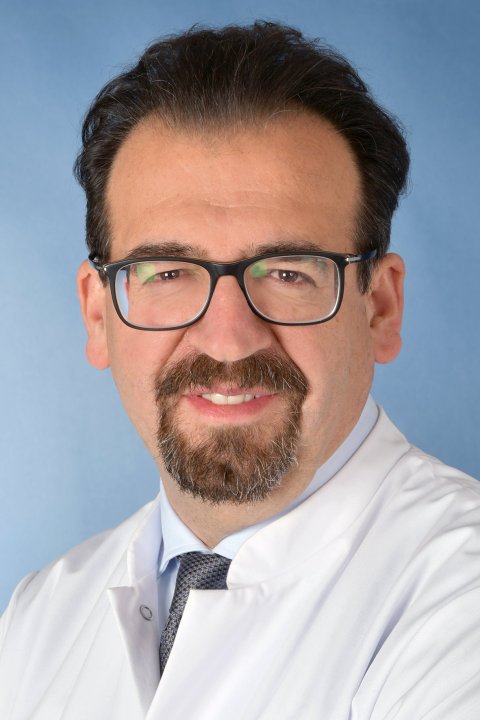
Image source: Universitätsklinikum Knappschaftskrankenhaus Bochum
HCC, the most frequently occurring malignant liver tumour, can be caused inter alia by cirrhosis and nonalcoholic fatty liver diseases. Since many patients are obese, sonography is often inadequate. “Thus, we need non-invasive markers to be able to detect the tumour early,” Professor Canbay points out and adds that “Small tumors can quite easily be removed surgically or be treated with other types of interventions. Once the cancer has spread across the liver, however, there are very few treatment options left.”
Any decision regarding the appropriate treatment, Canbay underlines, should be made by physicians with comprehensive hepatology expertise: “We have to determine exactly whether the liver can compensate for the removed tumour. While the liver is the organ with the highest regeneration capacity, liver failure can occur if not all complications are duly considered prior to the treatment.”
Tests without GALAD score are ineffective
Many hospitals conduct only the lab tests AFP-L3 and DCP under their early detection protocol – an approach Canbay considers insufficient: “When one test is negative, the other might well be positive. Only the combination with the innovative GALAD score, which takes the patient’s age and gender into consideration, can really exclude HCC. The combination of the test parameters is crucial.”
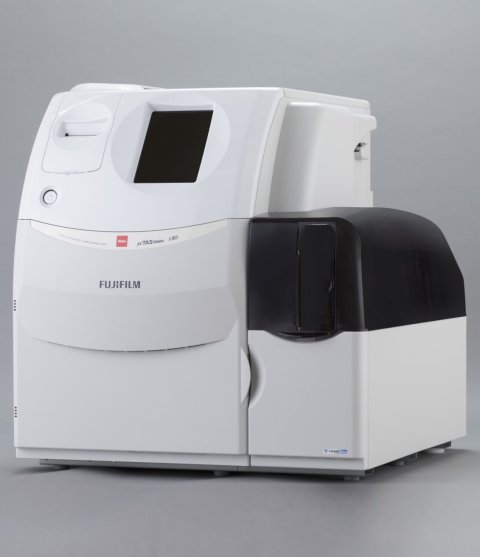
© FUJIFILM Wako Pure Chemical Corporation
In Bochum, the tests have been conducted for more than two years. Canbay himself was involved in the GALAD study. Patients from all over Germany present in his department to have this test done – which to date is available only in very few hospitals. “Despite the promising results, the health insurers don’t cover the costs for the test yet,” Canbay explains and adds that „We could detect HCC much more often in the early stage which improves the prognosis.” He considers the test a necessity since “25 percent of the population have metabolic syndrome. Moreover, the number of immigrants from countries with a higher rate of viral hepatitis infections is increasing. Thus, we need to integrate the tests as soon as possible in the routine.”
He hopes that in two or three years’ time the health insurers will have changed their minds and pay for the test. It would make sense since a positive test result makes further time-consuming and expensive tests superfluous. “We can’t perform an MRI scan every six months – that’s far too expensive. But we can determine the GALAD score regularly to understand the development and detect an evolving HCC early.” Moreover, patients who undergo timely and successful treatment enjoy a high quality of life and even can resume working. Thus, the test is a win-win option.
Profile:
Professor Dr. Ali Canbay is Director of the Medical Clinic of the University Hospital/Knappschaftskrankenhaus Bochum, Germany. He is a specialist physician for internal medicine and gastroenterology and holds additional qualifications in internal/critical care medicine, transplantation medicine and targeted tumour therapy.
01.03.2023
- cancer (1029)
- early diagnosis (220)
- equipment (476)
- laboratory (1112)
- liver cancer (29)
- testing devices (161)



